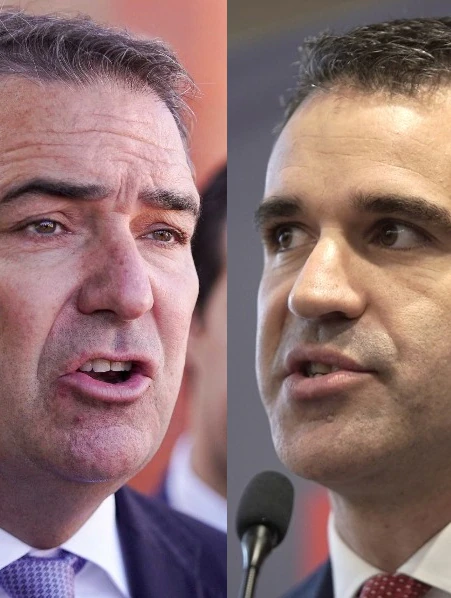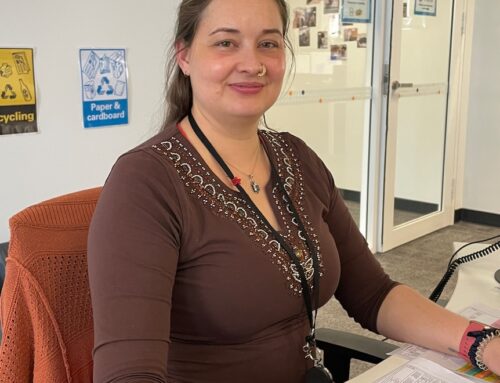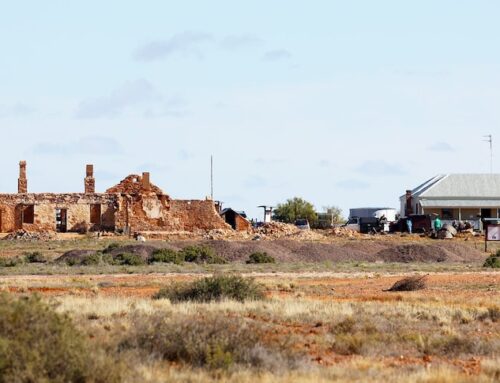If a week is a long time in politics, the 12 months leading up to an election in a global pandemic is an eternity.
Key points:
- South Australians will go to the polls on March 19 next year
- SA Premier Steven Marshall says he will be focusing on the vaccine rollout and delivering job outcomes
- Labor Leader Peter Malinauskas says he wants to set the state up for long-term growth
What the world will look like when South Australians line up to cast their votes — and how much of the population will have been vaccinated — are big unknowns.
After what has already been a trying and extraordinary time, how healthy are the major parties and their leaders looking now, one year out?
Riding the coronavirus wave
South Australia has recorded 638 cases of COVID-19 since February 2020, which is about 2 per cent of the total cases recorded nationally.
Of the 909 deaths caused by the virus in Australia, just four of those have been in South Australia.
It’s impossible to argue with those numbers, and the overall success of the health response will play a significant role in the lead-up to the next election.
“People look to their governments in a time of crisis, and they want to see strength — sometimes they see that, sometimes they don’t,” Premier Steven Marshall said.
“I personally perceive a massive sense of pride in South Australia at the moment.
It hasn’t strictly been Steven Marshall’s leadership that’s kept South Australia “safe and strong” as promised, but the decision-making and expansive powers of the Police Commissioner and Chief Public Health Officer.
Mr Marshall said he “wouldn’t be drawn” on how his own image had been impacted by the pandemic, saying “polls are volatile”.
He said his focus leading up to the next election would be on the vaccine roll-out, and on “delivering [the Liberals’] jobs outcomes”, on the back of high business confidence and recent jobs growth.
ABC News: Michael Clements
)But while the pandemic has boosted the Liberal state government’s political immunity, its term has been infected by scandal too.
Claims about South Australia “being the safest state in the safest country in the world” have not always rung true, perhaps most obviously when the virus jumped out of the Peppers medi-hotel and sparked the Parafield cluster.
A sexual harassment allegation, the MP travel expenses scandal, ICAC investigations and a leaking party room have all created persistent headaches for the Premier.
The fallout from the MP expenses scandal means Steven Marshall’s cabinet looks very different from what he had originally imagined for the next state poll.
But does the Premier think any of those problems have damaged his chances at a second term?
“I think we’ve taken decisive action on all of the areas that we’ve needed to internally, and I think we’ve raised the standard very significantly over our first three years,” he said.
Given the Premier took six weeks to expel Sam Duluk from the parliamentary Liberal Party when allegations of inappropriate behaviour emerged, some may disagree all action in those areas was decisive.
Labor’s Opposition isolation
Early in the pandemic, Labor leader Peter Malinauskas pledged he’d be taking an entirely bipartisan approach to the health emergency.
That pledge saw Mr Malinauskas go into self-imposed political isolation for large parts of 2020, opting to send his shadow ministers out to comment in his place.
He strongly believed picking fights in the middle of an emergency would be a bad idea.
“When I became Opposition Leader, literally from day one of taking up this job I said I wasn’t going to be a destructive Tony Abbott-style opposition leader,” Mr Malinauskas said.
“That was particularly on show throughout the course of [the pandemic].
“I’ve supported [the government] because I think that’s the right thing to do [because] we were in a period of genuine crisis.”
Labor hasn’t quite had the same frontbench upheaval experienced by the Liberals, but there has been instability.
One of the party’s few regional MPs Eddie Hughes stepped down from his shadow cabinet role in August, along with Labor veteran Tony Piccolo, who quit the frontbench for a misguided seat switch.
ABC News
)First-term MP Jayne Stinson most recently cited traumatic personal issues for her departure from Labor’s senior line-up.
Now that Mr Malinauskas has undergone a second reshuffle, and has himself re-emerged — what will his run-up to March 2022 look like?
“What we’ve been doing behind the scenes is serious policy work that we’re going to present to the people of this state at the next election, that represents things that can actually be delivered in government and set us up for long-term growth,” he said.
That “serious policy work” remains in quarantine for now, with only an anti-privatisation platform for public transport and plans around university reform revealed so far.
“[The government] has delivered South Australians less jobs, higher costs and privatised services.
“I’m looking forward to the year ahead, this state does have extraordinary opportunity ahead of it.
“But that’s going to take thoughtful policy, and boldness, and a sense of vision for our state.”




